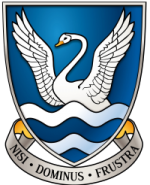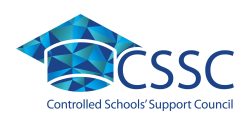 Music
Music
Aims
Music provides opportunities for pupils to develop the key skills of:
- communication through presenting music to different audiences and discussing and sharing ideas with others.
- application of number through recognising pattern, sequence, order and rhythmic relationships.
- ICT through using a range of ICT to compose and perform music.
- working with others through taking different roles and recognising and supporting the different contributions of others in groups and ensemble work.
- improving own learning and performance through appraising their own work, recognising the need for perseverance, developing the ability to use time effectively, and increasing their ability to work independently.
- problem-solving through achieving intentions when composing and presenting performances to different audiences and in different venues.
Staffing
Mrs D Johnson (Head of Music)
Mrs Irvine
Mrs Martin
Instrument Tutors:
Mrs J Ashmore (upper strings)
Mr R Clinton (brass)
Mrs L Devlin (upper strings, piano, theory)
Mr A Douglas (flute)
Mr M Donaghy (guitar)
Mrs M Fenn (woodwind)
Mrs K Marsden (upper strings)
Miss A McMenamin (cello, piano)
Miss J Meneely (piano)
Subject Overview
The Music Department is at the heart of the school’s daily life, with rehearsals beginning from first thing in the morning and throughout the school day for various choirs and a wide range of instrumental groups. The department provides music for formal events such as Prize Night, our Carol Service, P7 Open Evening, Womens’ World Day of Prayer, Spring Concert and Friends of Glenlola Dinner to name a few, as well as for many informal musical events throughout the school’s academic year. We have 11 of the best instrumental tutors in Northern Ireland who teach lessons throughout the school week. We currently offer lessons on a range of instruments including all of the standard orchestral instruments as well as piano, guitars and drums.
“Music is a higher revelation than all wisdom and philosophy.” ~ Ludwig von Beethoven.
Key Stage 3
At Key stage 3 pupils are given the opportunity to compose, perform and develop their listening skills. They will develop keyboard abilities while learning to create and control musical ideas. A variety of resources are available to strengthen learning such as group rehearsal rooms and garageband software in our Mac room. Pupils will be offered the opportunity at this age to study an instrument privately with one of our peripatetic tutors.
All pupils in KS3 study music for 1 period every week. Within each lesson the girls experience the three components of music: listening, composing and performing. They play a wide range of classroom instruments and do an ICT task using garageband in years 9 and 10.
Key Stage 4
In GCSE music the girls will have opportunity to compose and record their own pieces as their controlled assessment, perform for a visiting assessor. They also study many diverse musical styles and cultures.
They do this by studying particular works in detail, ranging from the Baroque era, through the Classical and Romantic eras and finally modern music. The works are divided into Repeated Patterns, Irish Music, Incidental Music and Vocal Music modules.
Key Stage 5
Like GCSE, there are three aspects to KS5 music: composing, performing and listening and appraising. The pupils will compose and record a piece of music, perform for a visiting assessor and study musical form through specific works.
Career Opportunities
The subject is essential for musicians and is helpful for careers in:
- Media studies
- Teaching
- Speech therapy
- Occupational therapy
- Library work
- Medicine
- Law
- Journalism to name a few
Extra Curricular Provision:
Monday
Jazz band
Concert band
Tuesday
Junior Choir
Rock Group
String Ensemble
Wednesday
Senior Chamber Choir
Senior Choir
Thursday
Senior Chamber Choir
Drumming Group
Barbershop
Junior Chamber Choir
Friday
Fiddle Club
Staff Choir




